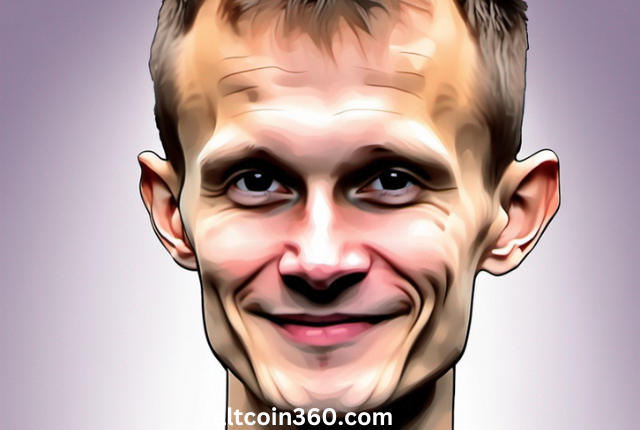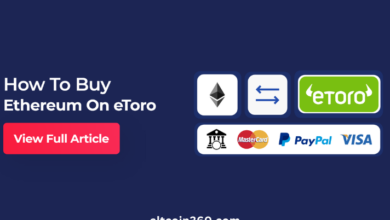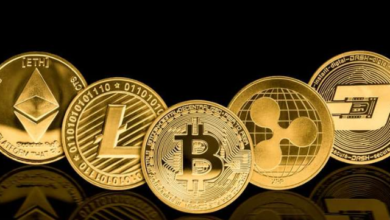Ethereum’s Vitalik Buterin Weighs In on Worldcoin: A Game-Changer or a Passing Fad?

Introduction
Cryptocurrencies have been a hot topic of discussion for the past decade, with Bitcoin leading the way as the pioneer of decentralized digital currencies. However, the crypto landscape is continually evolving, and new projects are emerging to address some of the limitations and challenges faced by existing cryptocurrencies. One such project that has gained significant attention is Worldcoin, and Ethereum’s co-founder, Vitalik Buterin, recently shared his thoughts on whether Worldcoin is a game-changer or just another passing fad.
Worldcoin: An Overview
Worldcoin is a cryptocurrency project founded by Sam Altman, the former president of Y Combinator and co-chairman of OpenAI. The project’s primary goal is to distribute cryptocurrency to people around the world by using biometric identification, ensuring that each person receives an equal and fair share. This ambitious vision has sparked both excitement and controversy in the crypto community.
Vitalik Buterin’s Perspective
Vitalik Buterin is a well-respected figure in the blockchain and cryptocurrency space, having co-founded Ethereum, the second-largest cryptocurrency by market capitalization. When someone of his stature comments on a new project like Worldcoin, it understandably generates significant interest.
In a recent interview, Buterin expressed his views on Worldcoin, acknowledging its potential but also raising concerns. Let’s delve into Buterin’s thoughts to gain a better understanding of his perspective.
Worldcoin’s Potential as a Game-Changer
- Financial Inclusion: One of the primary goals of Worldcoin is to address the issue of financial inclusion. Buterin recognizes the importance of providing access to financial services to people who are currently excluded from the traditional banking system. Worldcoin’s biometric identification system could potentially make it easier for individuals in underserved regions to access the global economy.
- Fair Distribution: Worldcoin’s distribution mechanism aims to provide everyone with an equal share of the cryptocurrency. Buterin appreciates this approach as it attempts to mitigate the wealth concentration problem seen in many existing cryptocurrencies, where a small number of early adopters hold the majority of the coins.
- Innovation in Identity Verification: The use of biometrics for identity verification is an innovative aspect of Worldcoin. Buterin acknowledges that advancements in identity verification could have broader applications beyond cryptocurrency, potentially improving security and privacy in various industries.
- Awareness of Ethical Concerns: Buterin appreciates that Worldcoin is actively addressing ethical concerns surrounding the collection and use of biometric data. He notes that their commitment to privacy and security is essential, considering the sensitive nature of biometric information.
Worldcoin’s Potential Pitfalls
- Centralization Concerns: Buterin raises a significant concern about the potential centralization of power in Worldcoin’s distribution model. While the project aims for fairness, there’s a risk that a centralized authority could still control the issuance and distribution of Worldcoin, negating the decentralization principle that underlies cryptocurrencies like Bitcoin and Ethereum.
- Security and Privacy Risks: Biometric data is highly sensitive, and any breach or misuse could have severe consequences for individuals. Buterin highlights the need for robust security measures to protect users’ biometric information and ensure their privacy is not compromised.
- Long-Term Viability: Like many new cryptocurrency projects, Worldcoin faces the challenge of long-term viability. Buterin emphasizes the importance of a sustainable and well-thought-out economic model to ensure the project’s longevity.
- Regulatory Hurdles: The global regulatory landscape for cryptocurrencies is complex and evolving. Buterin suggests that Worldcoin will likely face regulatory challenges related to identity verification and distribution, which could impact its ability to achieve its goals.
Conclusion
In the world of cryptocurrencies, innovation is constant, and new projects like Worldcoin aim to address some of the industry’s most pressing challenges. Vitalik Buterin’s perspective on Worldcoin reflects the nuanced nature of this discussion. While he recognizes the project’s potential to improve financial inclusion and distribution fairness, he also raises valid concerns about centralization, security, privacy, long-term viability, and regulatory hurdles.
Ultimately, whether Worldcoin becomes a game-changer or a passing fad will depend on its ability to navigate these challenges successfully. It is essential for the project’s team to address these concerns seriously and work towards creating a cryptocurrency that not only benefits the underserved but also upholds the core principles of decentralization and privacy that are at the heart of the cryptocurrency movement. As Worldcoin continues to develop and gain traction, the crypto community and the world at large will be closely watching to see if it can live up to its ambitious vision.





Can you be more specific about the content of your article? After reading it, I still have some doubts. Hope you can help me.